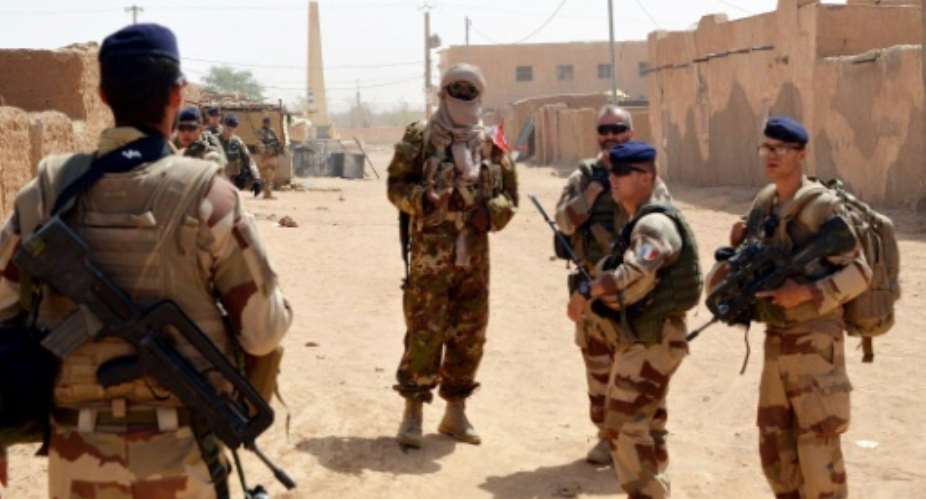Bamako (AFP) - A key step on the road to peace in northern Mali will take place Saturday when interim local authorities begin work, smoothing the path to municipal elections, the Malian government said.
Tuareg-led rebels led an uprising in 2012 that was hijacked by jihadists, throwing northern Mali into chaos, but the rebels signed an accord in 2015 without the Islamists.
Putting into place interim authorities is a central part of that deal. They will represent the inhabitants of Mali's five northern regions until security improves so that local elections can be held.
"On the proposal of the Malian government, Hassan Ag Fagaga of the Coordination of Azawad Movements (CMA) was appointed president of the interim authorities in the region of Kidal," a government statement said.
Ag Fagaga, a colonel and former deserter from the regular army, will take office on Saturday, the statement said.
The CMA rebel alliance signed the deal along with the government and loyalist militias with hopes of bringing stability to the north, the cradle of several Tuareg uprisings and a sanctuary for Islamist fighters.
The rollout of these interim authorities has been long delayed but talks on February 10 between the government, pro-Bamako militias and the former rebels finally yielded a definitive timeline for the local officials to take up their posts.
The government statement released Friday also named ex-separatist rebels to positions in Timbuktu and the region of Menaka.
Pro-government militia were given a post in Gao while the government nominated a Bamako-based businessman to head the regional assembly in the Taoudenni region.
They are expected to take up their posts in the immediate future.
However, several armed groups said they would protest in Timbuktu against the rollout of the regional officials on Saturday, highlighting schisms within the country's complex web of militias.
Another key component of the deal -- joint patrols between regular troops, pro-government militia and former rebels -- are due to begin on Monday in Gao and February 28 in Kidal.
Since the peace deal was signed, rival armed groups have repeatedly violated the ceasefire, threatening attempts to give the north a measure of autonomy to prevent separatist uprisings.
Jihadists continue to sow chaos. Almost 80 people were killed in the northern city of Gao last month by a suicide bomber targeting pro-government and ex-rebel militia preparing joint patrols in the area.





 Former Kotoko Player George Asare elected SRC President at PUG Law Faculty
Former Kotoko Player George Asare elected SRC President at PUG Law Faculty
 2024 elections: Consider ‘dumsor’ when casting your votes; NPP deserves less — P...
2024 elections: Consider ‘dumsor’ when casting your votes; NPP deserves less — P...
 You have no grounds to call Mahama incompetent; you’ve failed — Prof. Marfo blas...
You have no grounds to call Mahama incompetent; you’ve failed — Prof. Marfo blas...
 2024 elections: NPP creates better policies for people like us; we’ll vote for B...
2024 elections: NPP creates better policies for people like us; we’ll vote for B...
 Don’t exchange your life for wealth; a sparkle of fire can be your end — Gender ...
Don’t exchange your life for wealth; a sparkle of fire can be your end — Gender ...
 Ghana’s newly installed Poland train reportedly involved in accident while on a ...
Ghana’s newly installed Poland train reportedly involved in accident while on a ...
 Chieftaincy disputes: Government imposes 4pm to 7am curfew on Sampa township
Chieftaincy disputes: Government imposes 4pm to 7am curfew on Sampa township
 Franklin Cudjoe fumes at unaccountable wasteful executive living large at the ex...
Franklin Cudjoe fumes at unaccountable wasteful executive living large at the ex...
 I'll 'stoop too low' for votes; I'm never moved by your propaganda — Oquaye Jnr ...
I'll 'stoop too low' for votes; I'm never moved by your propaganda — Oquaye Jnr ...
 Kumasi Thermal Plant commissioning: I pray God opens the eyes of leaders who don...
Kumasi Thermal Plant commissioning: I pray God opens the eyes of leaders who don...
